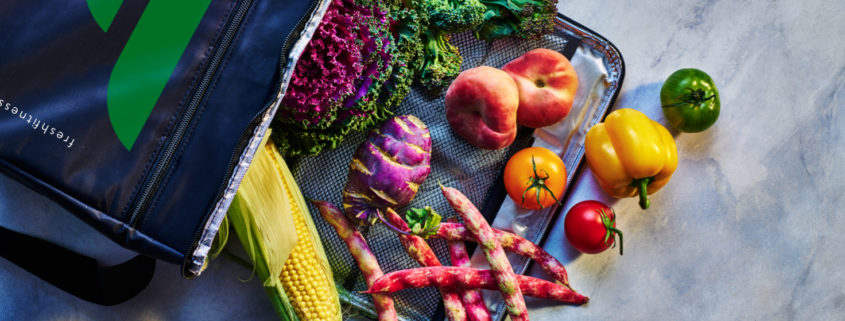The Truth About Carb Loading

The marathon is fast approaching, you’ve trained hard to get to this point, and stuck to your 4-weeks-out-marathon-prep-plan. So far, so good. But the nutritional choices you make in the last week pre-marathon can also be crucial to crossing that finish line feeling strong.
We’ve all heard about the benefits of “Carb-loading” prior to the marathon, but is it really a good idea to have an “All-you-can-eat” pasta dinner the night before?
The science
Our body stores carbs in the form of glycogen in our muscles and liver. When we workout and our body needs energy, our glycogen stores are the easiest accessible way for the body to convert glycogen to glucose again, which can be used as energy. The average amount of glycogen we can store in our muscles is between 350 to 500g. This equals around 90 minutes of endurance exercise.
The body can also use fat as a fuel to generate energy. This process is happening often simultaneously to burning glycogen but this process is more complex and slower.
It’s the moment when our glycogen runs out, that runners ‘hit the wall’. Beyond this point, you can still use the fat metabolic pathway to produce energy, but this is about 15% less efficient, and this is why, inevitably, you’ll slow down.
[yop_poll id=”2″]
Do’s and Don’ts
To increase your glycogen storage to full capacity for race day, you can ‘carb load’. But how does that actually work?
A frequent mistake made by runners is eating an extra large dinner the night before. The problem with this is that it doesn’t give your body enough time to digest and you’ll still feel bloated in the morning. On top of that, you can’t completely fill your muscles with glycogen from just one meal.
For this reason, it’s better to start choosing your carbs wisely three days prior to your race. Since you’re tapering and running very few miles over these final days, the glycogen will accumulate in your muscles.
Aim to keep your total calorie intake for the day in line with your normal intake, but swap fats for more carbs. Try to get around 70% of your intake from carbs. Go for healthy unprocessed foods and leave the junk food out. It’s a good idea to scale back on fibrous foods the day before the marathon as this could cause some discomfort in the gut whilst running.
The night before the race, enjoy a normal sized, but carb-heavy meal. Don’t eat too late and give your body enough time to digest. You don’t want to wake up on race day full from the night before, it’s better to wake up hungry. Schedule your breakfast 3 hours before the start of the race.
It’s normal to gain some weight over this period but there’s no need to get worried about this. For every gram of glycogen, your body stores around 2.6 grams of water too. This extra weight isn’t going to slow you down and it can be helpful in keeping you hydrated during the race.
Read how the two FFF’ers taking on the Paris Marathon this weekend are feeling, and their top tips ahead of the big race!

